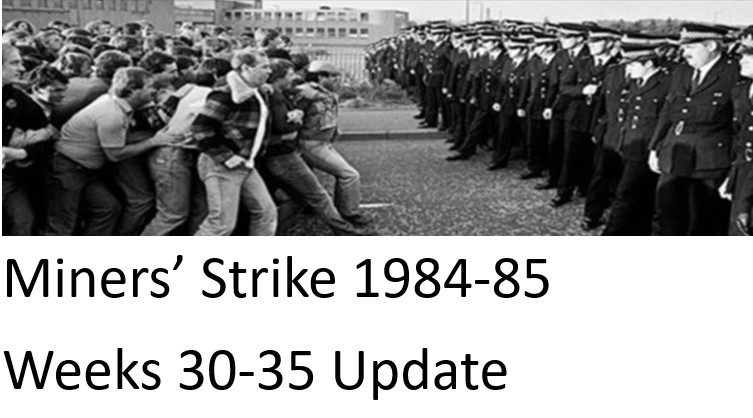By Joe Langabeer, Lincoln Labour Party member
In an interview in the Daily Telegraph, Sonia Friedman, the West End and Broadway theatre producer, suggested that the British theatre sector has lost £330 million in revenue during the coronavirus lockdown and that 70% of British entertainment will be out of business by the end of the year.
Other have warned that theatres will be closed until 2021 due to social distancing measures and the Really Useful Group, owned by Andrew Lloyd Webber, is asking for government funding to support theatres.
All these dire warnings might come true. But there is one question that doesn’t seem to be asked and that is what will happen to the theatre workers?
By theatre workers, we mean technicians, actors, crew, front of house staff and administration and questions are being asked by their unions.
It isalso reported that Edinburgh’s Royal Lyceum is going to take a “hibernation”. The artistic director, David Greig, explained that the choice was either a redundancy process or a full closure before Christmas and the staff had been notified of the risk to their jobs. This theatre is state-funded through the Scottish Government and Culture Edinburgh.
BECTU are currently in negotiations to prevent any redundancies and that is why it is important to join a union (see previous article). Now, in order for the Royal Lyceum to be kept alive, it must be given considerable funding or, if the government decide not to fund it, it will have to close with mass job losses, and a theatre that prides itslef on community values disappear. That is the reality of regional theatres across the country at this moment in time.
One of the biggest theatre companies in UK
The shortfall at the Royal Lyceum was just over £770,000, but how do the private companies compare? The Ambassador Theatre Group (ATG) has been attacked on social media for not refunding most of its customers, not unreasonable, given that it is one of the biggest theatre companies in the UK and has a hefty turnover of £226.4 Million. They are also known to pay minimum wage to most of their staff and consequently have a high turnover.
For such a big corporation to exist we must start asking questions about why they allow appalling working conditions and yet still provide such poor consumer-satisfaction.
There seems to be an out-pouring of emotion along the lines “once theatre’s open again, we must make sure we invest in it”. But why should we be investing in companies like ATG and other private corporations that exploit paying consumers and workforce alike?
The answer is to invest in subsidised and non-profit regional theatres. These theatres are the ones that are suffering most in this crisis, due to huge financial cuts in the Thatcher era, with the added burden of the last ten years austerity. The subsidised sector has had its heart ripped out and the only way it can be kept alive is for governments and consumer both to invest.
We must realise that the theatre industry will ben (and already has been) hit hard by the pandemic. But what has landed the industry in this mess is partly its own commercial and profit-making values. In a report to parliament, Andrew Lloyd Webber’s Really Useful Group (RUG), outlined the damages that could occur if the theatre industry did not receive support.
Economic value placed on the arts
Their report also outlines a strategy for re-opening the theatres, but whilst it makes comparisons to theatres opening in South Korea, it does not take into consideration other measures that South Korea did to combat the virus, which the British government seems incapable of doing.
The economic value that is placed on the arts is critical. The RUG report is based on a business model of profitability only, something that creates potential problems for theatres who want to develop less popular work. The big West-End shows are constantly measured only in economic language. At one point, the RUG report says, “…on average a West End musical requires 55% of the venue’s tickets to be sold to meet the production’s running costs. For more expensive shows such as The Phantom of the Opera this can be as high as 65% or more. For more than 30 years this has not been an issue for Phantom which typically has an average attendance over 95%. However, it is highly unlikely that once the lockdown measures are lifted, we will see these levels of attendance”.
It’s as if the quality of the production is only measured by regained revenue and seating capacity. This overriding ‘economic’ criterion has also shifted to the Arts Council and the neo-liberal agenda that Thatcher had designed has now intrinsically damaged the cultural value of theatre.
If this was not the case, theatres could argue for funding on the value of culture it provides rather than from purely financial gains. The report moves onto guidelines which the government could act upon if they were able to save the theatre industry.
Theatres in dangerous territories
One of proposals made proposed by RUG is for an investment fund:
“If the government wishes to support new and innovative productions then we request that the government considers providing investing in productions that are unable to obtain financing elsewhere. This would give the government the benefit of receiving a return on such investment in the event the production is a success”.
But the word “success” is extremely subjective here and, again, is framed only in terms of a return on investment. A lot of regional productions and non-profit theatres make only a modest return on investment and have to carry some net-losses. It would be very damaging to the industry as a whole, if the only state investment that goes in is given to the West-End, on the grounds that they are the only theatres that can provide a return on investment. The subsidised theatre would collapse and culturein the UK Kingdom would be replaced with tribute band tours and knock-off musical sing-alongs.
The culture industry has relied so much on capitalism that now the very entity it lives off is slowly chewing away at its decaying corpse. This situation is profitable for companies like RUG who are able to take these investment-worthy shows and capitalise on them in the West-End to make profit. But it is a dangerous road if the government accepts their terms.
Another worrying element in the report
Another worrying element in this RUG report is their emphasis on “third-party investors/sponsors” to give them tax breaks and bailouts. These third-party investors come in the form of banks and large private companies that have the power to censor any material on stage. This became a problem for the Royal Shakespeare Company in the 1980s, with various private sponsorships, and this has been documented extensively in ‘Theatre Music and Sound at the RSC: Macbeth to Matilda’.
We are at a tipping point in the theatre industry, whether people like it or not. I am not advocating that the state shouldn’t financially support the theatre industry. But it should be about supporting regional and subsidised venues. Some investment from the public could help these theatre companies in the short-term.
However, what is the best way to support theatres? The answer is to get political. Join a union if you have any job in a theatre and organise demonstrations and protests if there are threats of redundancy. Join the Labour Party and argue for adequate funding to the subsided industry. Create political theatre on the roads, streets, in the communities and workplaces, and anywhere which people can see it for free.
Art-Rising, which is a collective of socialists in the industry, argues for the state-ownership of the theatre industry, to be used for the benefit of the public. It will not be used as propaganda to serve the state, but as a variety of different ideas flourishing into new and experimental theatre that creates waves. National and regional theatre is in dangerous territory. But if we fight for these demands then theatre could be in a much better place and could provide a cultural service to the many rather than the few.
Joe Langabeer is a co-founder of Art Rising
June 24, 2020



